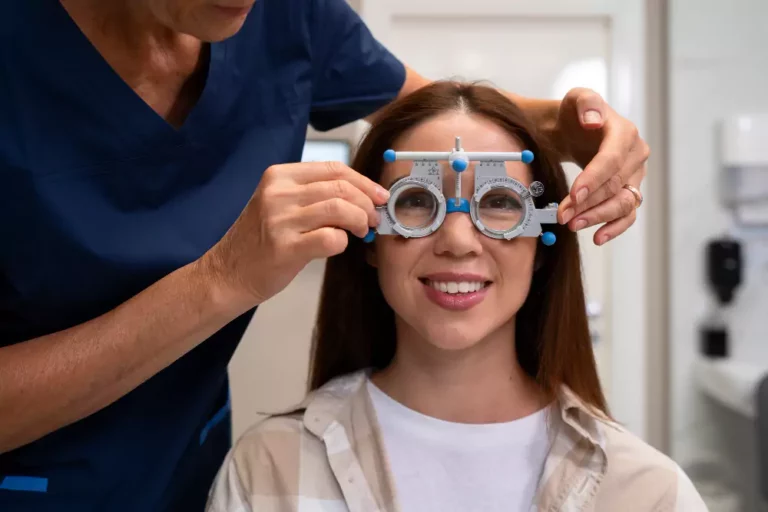Complete Eye Check-Up

A complete eye check-up is a comprehensive examination of your eyes to assess vision clarity and detect early signs of eye diseases or systemic health issues. Regular check-ups are essential for maintaining good eye health and overall well-being. Here are key points:
Purpose: These exams help in identifying refractive errors (like myopia, hyperopia, and astigmatism), eye diseases (such as glaucoma, cataract, and macular degeneration), and systemic conditions like diabetes and hypertension that may affect the eyes.
What It Includes:
Visual acuity test to measure clarity of vision.
Refraction test to determine correct lens prescription.
Slit-lamp examination to view the front structures of the eye.
Intraocular pressure (IOP) test for glaucoma screening.
Dilated retinal exam to assess the retina and optic nerve.
Color vision and depth perception tests, if needed.
When to Get Checked:
Children should have eye exams at 6 months, 3 years, and before school.
Adults (18-60 years): Every 1-2 years.
Seniors (60+): Annually.
Diabetics, hypertensives, and people with eye disease history should have more frequent exams.
Benefits: Early detection of eye diseases leads to better outcomes. Regular check-ups also ensure up-to-date vision correction and help prevent avoidable vision loss.
Conclusion: Even if you don’t have noticeable symptoms, a complete eye check-up plays a vital role in preserving your vision and identifying potential health problems early.
